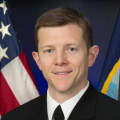People who have injured the posterior cruciate ligament (PCL) of the knee often report a combination of the following symptoms

Swelling in the knee joint is a common symptom of PCL tear.
In This Article:
- Posterior Cruciate Ligament (PCL) Injuries
- Symptoms of Posterior Cruciate Ligament (PCL) Tears
- Posterior Cruciate Ligament (PCL) Tears: Causes and Risk Factors
- Diagnosing Posterior Cruciate Ligament (PCL) Tears
- Posterior Cruciate Ligament (PCL) Tear Treatment Options
- Sharp or dull pain around the back of the knee. This can occur immediately or develop in the hours or days after the injury.
- Swelling. Bleeding around the torn ligament may result in swelling. Swelling typically occurs within 2 to 3 hours of the injury.
- Stiffness. Swelling may cause the knee to become stiff. A person may have trouble bending the knee, resulting in a limp or difficulty going up or down stairs.
- Difficulty bearing weight. The injured knee may be difficult or painful to stand or walk on, especially for long periods of time.
- Knee instability. Mild or moderate sprains may cause very little or no knee instability, while more severe sprains may cause a person to feel as if the knee is about to buckle or give out. In some cases, knee instability is a sign of an undiagnosed PCL tear that occurred months or even years earlier.
- The back of the knee may be warm to the touch. This is due to bleeding within the knee joint caused by the injury.
- Tenderness around the knee joint. The knee joint, particularly the back of the knee, may be tender or sensitive to touch.
- Knee tingling or numbness. In more severe PCL injuries, people may report the feeling of tingling or numbness around the knee joint.
Unlike the anterior cruciate ligament (ACL) or medial collateral ligament (MCL), PCL injuries are not always accompanied by a “popping” sound at the time of injury. Depending on the severity of the injury, some people may not notice a PCL tear, especially if the injury is mild.
Additional Symptoms
The PCL is often injured in conjunction with other structures in the knee, such as the ACL or meniscus. These injuries may cause additional symptoms, such as knee locking (the inability to bend or straighten the knee) or bruising, and may require additional treatments.


